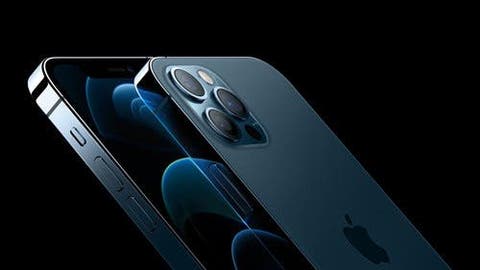According to popular Apple analyst, Ming-Chi Kuo, the 2021 iPhone (iPhone 13) Face ID transmitter (Tx) lens material will not be glass. Instead, it will use plastic material. Furthermore, the Pro model with an ultra-wide-angle lens may upgrade from 5P to 6P. In addition, analyst Kuo looked into the future and predicts that the iPhone 14 will use an integrated camera lens design.
Talking about the development of iPhones over the next three years, Kuo believes that there will be significant changes. According to him, in order to reduce the size of the front camera module, the new iPhone (iPhone 14) will adopt an all-in-one lens design as early as 2022. Furthermore, the 2022 iPhones (iPhone 14) will come with 7P telephoto lenses. This will be available for the Pro models only. He also believes that 2023 iPhones (iPhone 15 tentatively) will use periscope telephoto lenses.
iPhone 13 will use a plastic protective material for its camera
Ming-Chi Kuo is quite positive that the iPhone 13 Face ID transmitter (Tx) lens will abandon the glass material and switch to a plastic lens. This change means that the application range of plastic lenses will be wider. The market generally believes that glass for the Tx lens prevents deformation. Especially deformation as a result of heat during the operation of the VCSEL (Vertical Cavity Surface Emitting Laser).
However, there have been some improvements in coating technology. These improvements ensure that there is no problem in replacing the glass material of the Face ID TX lens with plastic.
Ming-Chi Kuo predicts that 8P lenses will be widely adopted by major mobile phone brands from 2022 to 2023. However, the current 8P lens yield rate in the industry is less than 50%. Also, the cost of production is also very high. This means that the number of brands to use this technology will be few for now.
Apple intends to move 10% of iPhone 12 production from China to India
According to Indian media reports, Apple intends to move 10% of iPhone 12 production from China to India, and Foxconn is already preparing the necessary production equipment.
So far, Apple is making some smartphones in India, with the company planning to launch the flagship iPhone 12 smartphones in that country. Foxconn will be the first to start production of the iPhone 12 in India, after which, at the end of 2021, Pegatron will also launch the iPhone 12 production in the country.
Prior to this, Indian media reported that Apple plans to produce the iPhone 12 series in India. Wistron is also preparing to begin the production of a new iPhone in Bangalore. With a plan to invest around $30 million, Wistron also wants to hire 10,000 employees for the new plant. The plant is expected to be fully operational by October this year, with about 1,000 new employees already joining Wistron.
Apple currently manufactures smartphones in India such as the iPhone 6S, iPhone 11, iPhone XR and the new iPhone SE. Several sources also indicated that Apple is pushing local manufacturing because the iPhone maker hopes to reduce its dependence on China.
When manufacturing locally, Apple also saves 22% of taxes on imported products.
Follow Gizchina.com on Google News for news and updates in the technology sector.
